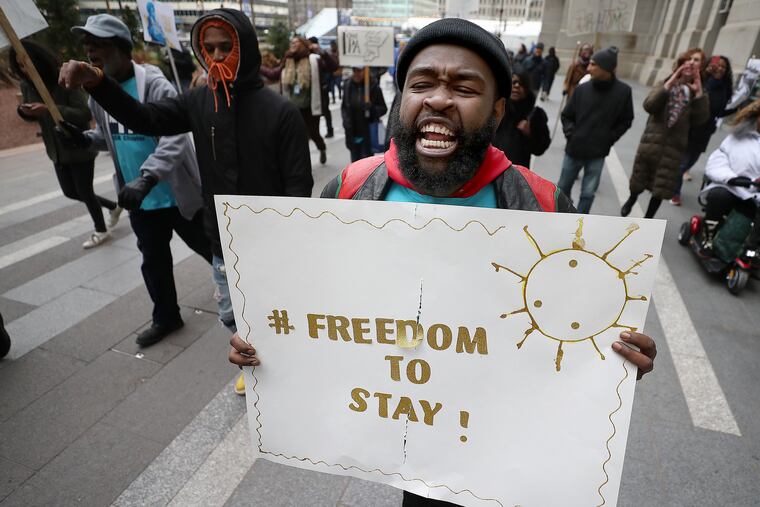Rent protections are key in fight for equality in Philadelphia | Opinion
City Council will soon vote on the Emergency Housing Protection Act, a package of bills that gives Philadelphia renters added protections at a time when everything is uncertain.

Our city is in the midst of an economic, social, and moral crisis. We have lost more than 1,200 of our people to COVID-19. Roughly a quarter of Philadelphia residents lived in poverty prior to the pandemic. Since March, over 1.9 million people in Pennsylvania have applied for unemployment, while many of those who continue to report to work lack proper protections, putting themselves and their loved ones at grave risk. Schools have been shut down, and our young people have fewer outlets for engagement and activity. Pools, recreation centers, libraries, shops, restaurants, basketball courts, and movie theaters are shuttered.
Before demonstrations protesting the murder of George Floyd flooded our streets with cries of “Black Lives Matter,” before storefronts were shattered and tear gas dispensed, before disorder and exasperation reverberated across the city, state, and country, black families were suffering. Gun violence was on the rise, and hunger plagued our communities.
Without income, and with the added expense of feeding and caring for children who would normally receive meals at school, families had no way to pay rent. Choosing whether to feed your family or pay rent on time is a choice that no one should have to make, but remains the reality for families across the city. And with half of Philadelphia residents renting their homes, this put thousands of families at risk of being evicted and becoming homeless.
The issues facing our community are large and span generations, but there is one simple thing we can do in the immediate future to ensure the safety and stability of our people: keep families in their homes by protecting renters.
If we allow Philadelphia to be overtaken by an eviction and homelessness crisis, young people will not only have nothing to do but will have nowhere to return to. This will force them into the streets and risk further violence. As summer approaches and temperatures rise, being without a home is dangerous on multiple levels. Perhaps most concerning is that a wave of homelessness will undoubtedly incite a second spike of COVID-19 cases, overtaking our poorest, most vulnerable neighborhoods, and compounding the racial disparities that have become increasingly glaring.
Councilmembers Kendra Brooks, Jamie Gauthier, and Helen Gym introduced the Emergency Housing Protection Act earlier this month to City Council, a package of bills that gives Philadelphia renters added protections at a time when everything is uncertain. The legislation also ensures that landlords, many of whom rely on rent payments for their own livelihoods, still get paid. These protections include creating rent repayment plans, extending the eviction moratorium, increasing penalties for illegal lockouts, requiring mediation prior to eviction, waiving late payment fees for rent, and stopping large rent increases for those experiencing financial hardship related to the pandemic.
Though these provisions will not begin to address all of the problems facing our city right now, they will reduce the harm that the virus inflicts on poor and working-class communities of color. Keeping Philadelphia families in their homes will reduce violence, stop the spread of COVID-19, and allow us to focus on picking up the pieces of our fractured city. As black clergy, we urge the members of City Council to rally behind this legislation as a first step in rebuilding the fabric of our beautiful city.
The Rev. Gregory Holston is the pastor of Janes Memorial United Methodist Church and senior adviser on advocacy and policy for the Philadelphia District Attorney’s Office. The Rev. Robert Collier Sr. is the president of the Black Clergy of Philadelphia and the pastor of Galilee Baptist Church.